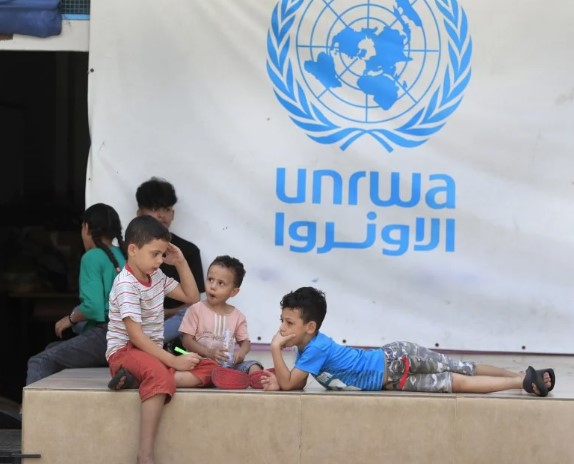Israeli Parliament Approves Ban on UNRWA Activities
In a controversial move, the Israeli parliament has passed two new bills targeting UNRWA. The legislation effectively shuts down the United Nations Relief and Works Agency for Palestine Refugees within Israeli borders and controlled territories. Both bills passed with strong parliamentary support. The ban is set to take effect in 90 days. It will close all of UNRWA’s facilities in the occupied Palestinian territories, including the West Bank, East Jerusalem, and Gaza. This decision risks severely impacting humanitarian aid as Gaza faces one of its most serious crises in years.
UNRWA was established in 1949 by the United Nations General Assembly. It has provided vital services, including education, healthcare, and vocational training, to millions of Palestinian refugees. The recent parliamentary vote is expected to significantly hamper the agency’s ability to operate. This raises concerns about the welfare of people in these regions. Many of them rely heavily on the decades-long services that UNRWA has been offering.
The first bill, prohibiting UNRWA from carrying out any activities in Israel, passed with a vote of 92-10 following intense debate. Meanwhile, the second bill, which labels UNRWA a “terrorist” organization, prohibits any contact between Israeli officials and the agency, passing with a vote of 87-9. These legislative changes are expected to directly impact approximately three million Palestinians residing in Gaza and the West Bank.
Humanitarian Operations Face Unprecedented Challenge
UNRWA is the largest provider of aid within Gaza. The region has been heavily impacted by over a year of intense military conflict. In the past year alone, hundreds of UNRWA workers have lost their lives in airstrikes. This has made it one of the most deadly years for the agency. The legislative decision would end UNRWA’s ability to deliver education, healthcare, and other essential services to Palestinian refugees. In Gaza, where UNRWA employs roughly 13,000 workers, a sudden stop in operations would paralyze the region’s main humanitarian supply channels.
UNRWA officials expressed serious concerns over the implications of the new legislation. The agency’s head, Philippe Lazzarini, called the ban “a dangerous precedent” that could deepen Palestinian suffering. Adnan Abu Hasna, the agency’s media adviser, described the decision as “unprecedented,” warning that it could lead to the total collapse of the humanitarian aid system in Palestinian territories.
This ban is not an isolated occurrence; UNRWA has long faced significant challenges and criticism from Israeli authorities. Since the latest wave of conflict began, tensions between UNRWA and Israel have grown. In its defense, Israel cited alleged security concerns, claiming that some UNRWA staff members were involved in the October 2023 attacks on Israeli targets. Israeli officials also alleged that Hamas had concealed assets near UNRWA-operated sites, which the agency denies. UNRWA has consistently stated that it does not knowingly work with armed groups and acts quickly to remove any personnel found with ties to such groups.
International Reactions and Concerns
The international community has voiced serious concerns regarding Israel’s ban on UNRWA. Key global players, including the United States and the European Union, have expressed their unease over the implications of this legislation. A spokesperson from the U.S. State Department emphasized the critical role UNRWA plays in providing humanitarian aid in Gaza. They expressed “deep concern” over the new restrictions. The spokesperson reiterated that the agency’s operations are essential for delivering much-needed relief. These statements reflect widespread apprehension regarding the impact of the legislation on humanitarian efforts.
The European Union’s foreign policy chief also shared his concerns about the ban. Josep Borrell warned that the legislation would make UNRWA’s humanitarian work in Gaza “virtually impossible.” He noted that the ban contradicts international humanitarian law. Borrell stated it would interfere with the provision of basic services in the region. Before the bill’s passage, a joint statement was released by foreign ministers from several countries. This statement highlighted the need for UNRWA to operate freely to fulfill its humanitarian mandate effectively.
Meanwhile, the Palestinian presidency has condemned the legislation, calling it a violation of basic human rights and further evidence of what they termed Israel’s “fascist” direction. In response to the vote, a spokesperson for the presidency in Ramallah stated they would oppose the move, arguing it would have devastating consequences on Palestinian access to essential resources and services.
Aid Flow and Infrastructure Under Strain
Israel’s restrictions on UNRWA are compounded by existing limits on humanitarian aid entering Gaza. Israel has maintained tight control over border crossings, limiting the entry of basic supplies, including food, medical supplies, and fuel. This has had a particularly severe effect in northern Gaza, where a total blockade has continued for over 20 days. Hospitals in Gaza are on the brink of collapse, with nearly 400,000 people deprived of access to basic necessities, a situation further worsened by disrupted aid flows.
UNRWA, as the main humanitarian operator in the region, has also suffered significant losses in its personnel and infrastructure. Since the beginning of hostilities, at least 233 UNRWA workers have died. The agency’s facilities have sustained extensive damage, with two-thirds of its infrastructure either damaged or completely destroyed. In light of these obstacles, UNRWA and other international humanitarian organizations have criticized Israel. They accuse Israel of blocking the distribution of critical resources within Gaza. The organizations are calling for unrestricted access to deliver essential services to vulnerable populations.
Despite the legislative restrictions, Israel’s Prime Minister has stated his government’s commitment to facilitating humanitarian aid to civilians in Gaza “in a way that does not threaten Israel’s security.” However, with UNRWA’s mandate under threat and no provisions made for alternative organizations to manage humanitarian efforts, the path forward for aid distribution remains uncertain.
The legislative actions signal a pivotal moment for humanitarian efforts in Gaza and the broader Palestinian territories. UNRWA’s exit will likely deepen Gaza’s humanitarian crisis, with most of the population already displaced at least once and heavily reliant on international assistance for survival.





